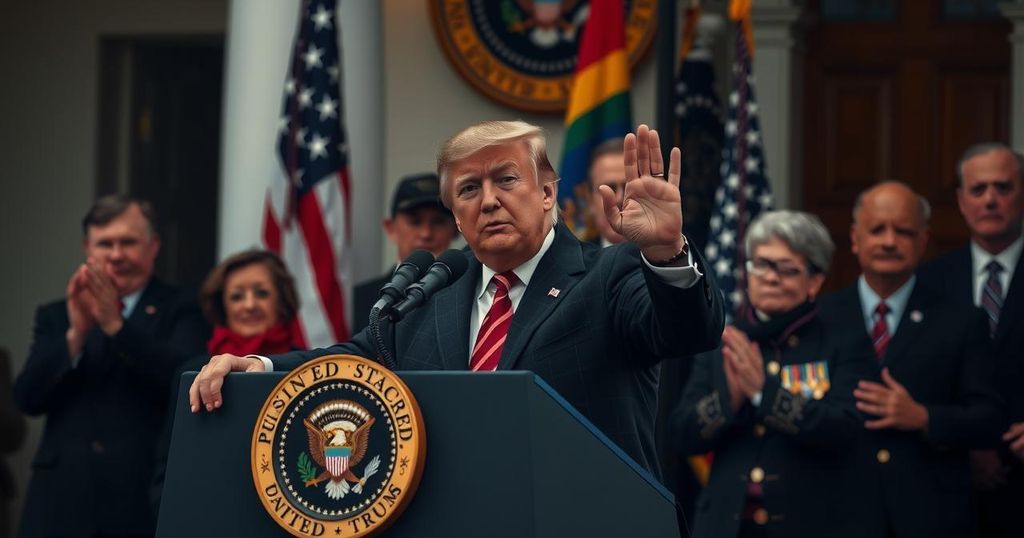Donald Trump Elected 47th President: A Return Amidst Turbulent Times

Donald Trump has been elected as the 47th president of the United States, winning over 277 Electoral College votes. His victory showcases a broader trend of social and economic frustration among the electorate, leading to radical policy expectations. Trump’s administration is anticipated to exacerbate national and international tensions, raising concerns for both domestic and global stability.
Donald Trump has been re-elected as the 47th President of the United States, securing a decisive victory with at least 277 Electoral College votes, as reported by The Associated Press. His win came amid expectations for a close race, yet he triumphed in vital battleground states such as Georgia, North Carolina, Pennsylvania, and Wisconsin. Trump’s victory signals a resurgence in American politics, despite his tumultuous previous term, marked by controversies including an insurrection at the Capitol and facing felony charges. Trump’s campaign effectively capitalized on widespread discontent stemming from economic challenges, including inflation under President Joe Biden, and geopolitical tensions involving support for Ukraine and ongoing conflicts in Gaza. After his victory, he claimed to have received “an unprecedented and powerful mandate,” suggesting a renewed commitment to a radical agenda aimed at reshaping American governance, as he looks to prioritize the welfare of U.S. citizens. Experts note that Trump’s appeal is rooted in long-standing social frustrations, particularly since 9/11 and the 2008 financial crisis. Scott Lucas from the University of Dublin emphasized that the political system is fixated on damaging issues that Trump has adeptly exploited. His administration is expected to adopt a hawkish stance regarding foreign relations, particularly with Israel and Iran, while also anticipating a more confrontational approach towards China. Looking ahead, Trump is poised to introduce drastic policies including extensive deportation efforts and leveraging the Justice Department for his interests. Analysts express concerns that this approach could lead the United States into a “much more dangerous era” as it shifts focus from coherent policymaking to one that serves Trump’s personal ambitions.
The recent U.S. presidential election has highlighted the polarized state of American politics. Donald Trump, having previously lost to Joe Biden in 2020, made a significant comeback by appealing to voters’ frustrations with the current administration’s handling of various issues. His return to the White House marks a pivotal moment in U.S. history as it challenges existing political dynamics and introduces potential volatility in both domestic and foreign policies.
Donald Trump’s victory as the 47th U.S. President reflects deep-rooted frustrations within the American populace, compounded by contemporary economic difficulties and geopolitical challenges. His aggressive campaign, which resonated with a significant portion of the electorate, suggests a transformative and potentially volatile period ahead for both the U.S. and the international community. The implications of his policies, particularly concerning immigration and foreign relations, might well redefine America’s role on the global stage.
Original Source: www.aljazeera.com






